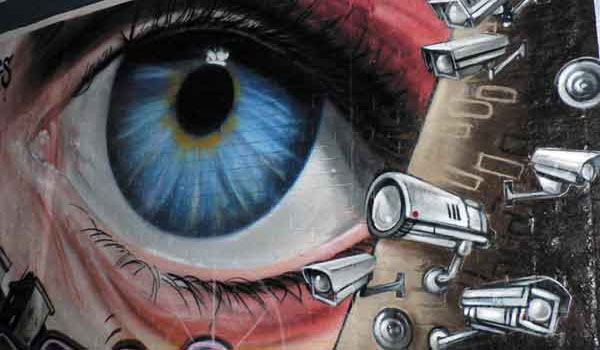
Since the erosion of Americans' civil liberties depends on high levels of public apathy, some of the most dangerous privacy breaches take place incrementally and under the radar; if it invites comparisons to Blade Runneror Orwell, then someone in the PR department didn't do their job. Meanwhile, some of the biggest threats to privacy, like insecure online data or iPhone GPS tracking, are physically unobtrusive and therefore easily ignored. And it'll be at least a year or two until the sky is overrun by spy drones.
So when a method of surveillance literally resembles a prop or plot point in a sci-fi movie, it helps to reveal just how widespread and sophisticated commercial and government monitoring has become. Here are five recent developments that seem almost unreal in their dystopian creepiness.
1. Buses and street cars that can hear what you say .
You can't really go anywhere in America without being tracked by surveillance cameras. But seeing what people do is not enough; according to a report by the Daily, cities all over the country are literally bugging public transportation.
In San Francisco, city officials have plans to install surveillance cameras that record sound on 357 buses and trolley cars, the Daily reported. Eugene, Oregon and Columbus, Hartford and Athens, Georgia, also have audio recording plans in the works. The systems have the capacity to filter background noise and hone in on passengers' conversations.
Officials have said that the system is merely intended to help resolve disputes between bus riders. San Francisco officials did not comment, but the Daily found a similar justification in procurement documents for the technology. “The purpose of this project is to replace the existing video surveillance systems in SFMTA’s fleet of revenue vehicles with a reliable and technologically advanced system to increase passenger safety and improve reliability and maintainability of the system.”
It's nice that the Department of Homeland Security, which covered the entire cost of San Francisco's system, is so committed to ensuring pleasant bus rides for passengers.
2. Mannequins that can see you.
A handful of retailers in the US and Europe are installing mannequins in their stores that can determine customers' age, gender and race, Bloomberg reported last month. Don't worry, the face recognition-equipped camera is hidden, so there is no way to tell whether the giant plastic dolls in the store are watching you as you shop. The company that developed the mannequins (named EyeSee) sells their attributes thusly:
This special camera installed inside the mannequin's head analyzes the facial features of people passing through the front and provides statistical and contextual information useful to the development of targeted marketing strategies. The embedded software can also provide other data such as the number of people passing in front of a window at certain times of the day.
They are also developing audio technology that can pick up key words from customer conversations to help them tailor their marketing plans. A screen that displays advertising geared specifically to each customers' demographic is also in EyeSee's future.
Really, wouldn't the ideal marketing scenario be if human customers were replaced by mannequins programmed to buy everything the other mannequins were selling?
3. Biometric time clocks.
For too long, employers lacked the ability to extract every second of labor from their workers with scientific precision. Thanks to the wonders of face recognition technology, many employees in low-wage workplaces are now required to log in to work on face recognition readers instead of using key cards or codes . Biometric time clocks like FaceIn, most commonly used at construction sites, create an avatar of the workers' face that the machine keeps forever and that ages alongside the employee. Allegedly, it can tell twins apart.



